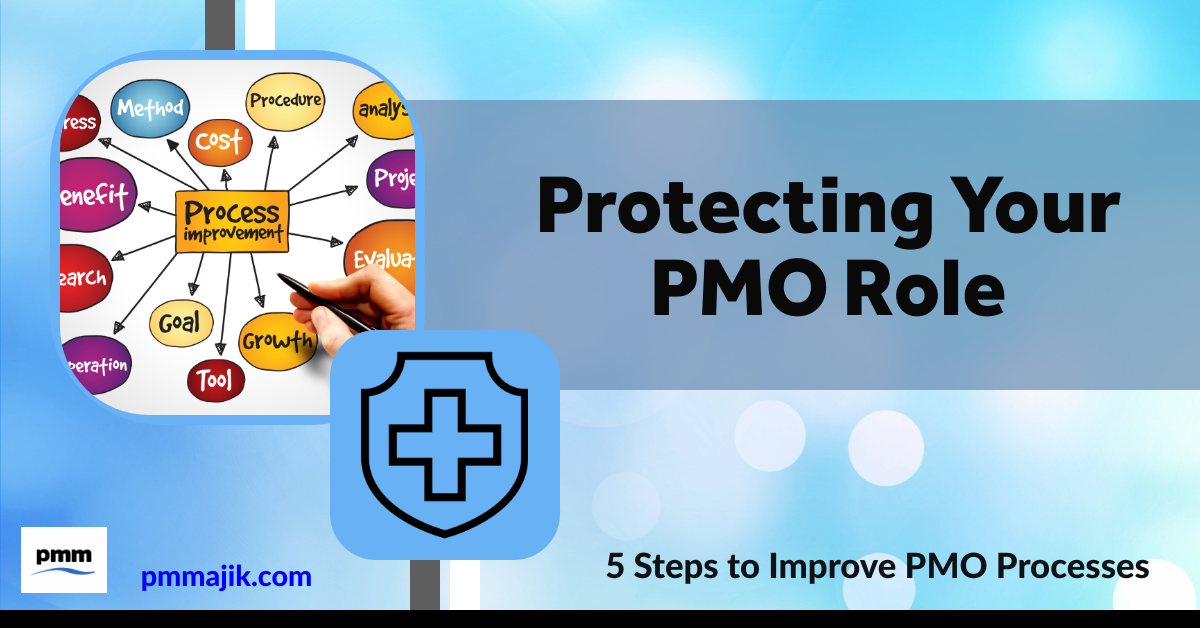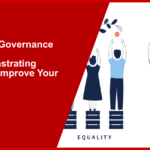Whichever type of project management office (PMO) you work in, there will always be room for processes to be improved. By being the person who works to improve processes, you can protect your PMO role in tough economic times.
Different types of PMO will focus on supporting projects in different ways, such as a governance PMO paying attention to how a project delivers and a supportive PMO working to ensure the right skills, tools, and resources are available, for example.
There will always be room for process improvement, though. You need to approach suggesting improvements in the right way to make sure your ideas get implemented and add real value. To help with that, we’re going to look at the five steps you need to take to improve PMO processes.
Step 1: Find processes that need improvement
In your everyday work, you will likely come across processes and tasks that you find frustrating and can see ways to improve them. Through the relationships you build with people around your PMO, you will also get a sense of procedures that frustrate people or get in their way.
You can also formally go about reviewing current processes within your PMO or for the projects you support. However, you should see permission from your leader – you may be seen as overstepping your role or taking time away from your set tasks.
Step 2: Find ways to improve processes
With the cumbersome or unnecessary processes figured out, you now need to work on ways to fix them. This is vital – you don’t want to be seen as the person who finds problems rather than solutions.
Draw on a range of resources to find ways to improve how projects are delivered. This could be anything from consolidating data streams to avoid duplication to bringing project processes into the PMO to reduce the number of people doing the same work on different projects.
Input from people working with the processes will ensure your solutions are relevant and don’t bring up different issues further down the line.
Step 3: Implement and evaluate
Getting permission to make changes and winning the support of stakeholders will be a challenge. Leveraging your network to ensure people understand what you’re trying to achieve can help smooth this over.
When you work to implement your process changes, you should have a clear idea of what the improvement will bring about. Are you intending to save money, and if so, how much? Do you expect there to be more working hours available?
Clear aims help you demonstrate value. Having data that shows you can save the business money or improve productivity will help you retain your job if redundancies are on the way.
Step 4: Share your wins
When you tell your business and wider organisation what you have achieved with your process improvements, it will serve two purposes:
- You can show how improvements can be made with a clear path to finding issues and implementing changes.
- You will raise your profile in the business as a problem-solver and someone committed to making the business more efficient.
Making your team, project managers, and leaders aware of how you bring about beneficial changes can help secure your position in the PMO.
Step 5: Keep on moving
One win or a single process change isn’t always going to be enough to secure your future in your job. In an ideal PMO, your colleagues will also be striving to make improvements at the same time.
While competition can be healthy, try not to let it overwhelm you or become the reason you work on process improvements. Focus on making your work more productive and to keep improving the elements of the PMO you have pushed through changes on.
Take feedback from the people who have been affected by your changes, too. This will give you solid information to take into a reapplication process during redundancy and also help you iterate and improve the work you’ve done.
Improving processes to protect your PMO job
Going over and above your current role and finding ways to improve project processes can help protect your job in the face of budget cuts. You can generate data to show your work is valuable to the business and gather feedback to demonstrate your work is powerful and appreciated.






